Charvet (fabric)
A charvet fabric is woven of silk or acetate in warp-faced rib weave, of a reversed reps type[1] with a double ridge effect.[2] The fabric's name derives from its frequent[3] and "clever"[4] use in the 19th century by the Parisian shirtmaker Charvet. It is characterized by a soft handle[5] and shiny appearance.[6] It also drapes well.[7] The bindings create a herringbone effect parallel to the warp, which make this weave suitable for creating faint diagonal stripe effects for ties, for which the fabric is cut on the bias. Patterns on this base are often made with supplementary weft. The fabric has also been used for mufflers,[1] scarves[8] and robes.[9]
| Charvet | |
|---|---|
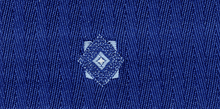 Charvet ground with supplementary weft pattern | |
| Type | Fabric |
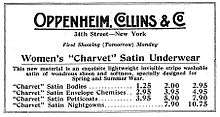
This weave is based on the Régence weave, a kind of reps with all weft raised on the backside,[10] which was popular during the regency of Philippe II, Duke of Orléans (lasting from 1715 to 1723). In the United States, at the end of the 19th century, the term was used in a broader sense, to describe either fabrics "extremely dainty in construction and effect"[11] or silk shirtings.[12] Since the beginning of the 20th century, the weave is rather found in solid fabrics for semi formal wear.[13]
By extension, the term is also used in knitting for a certain kind of bias striping, going up from left to right.[14]
Sources
- Schoeffler, Oscar E. (1973). Esquire's Encyclopedia of 20th Century Men's Fashions. McGraw-Hill. p. 651. ISBN 0-07-055480-3.
- Schoeffler, Oscar E. (1966). Esquire fashions for men. Harper & Row. p. 219.
- "Gimbels". The New York Times (advertising). November 14, 1913.
an effect used extensively by Charvet, the famous shirtmaker of Paris
- Bianchi, Ettore (1997). Dizionario internazionale dei tessuti. Como: Tessile di Como. p. 344.
- Barnum Wingate, Isabel (1949). Textile Fabrics and Their Selection. Prentice-Hall.
- Tortora, Phylis G. (1996). Fairchild's Dictionary of Textiles. Fairchild Publications. p. 466. ISBN 0-87005-707-3.
- American Fabrics Encyclopedia of Textiles. Doric Publishing Company. 1960. p. 598.
- "Gimbels". The New York Times (advertising). October 7, 1913.
"There are scarfs of Charvet cloth, in a soft ribbed texture, which seems to come unwrinkled by itself after being mussed
(subscription required) - "Wide variety of robes will suit all tastes". Chicago Tribune. September 17, 1952.
- Hardouin-Figuier, Elisabeth (1994). Les Etoffes, dictionnaire historique (in French). Paris: Editions de l'amateur. p. 320. ISBN 2-85917-175-4.
- "Boggs & Buhl, Allegheny". The Pittsburgh Press (advertising). March 17, 1903. Retrieved 2010-01-25.
Of the same family as Silk Ginghams and Swivel Silks. But more clearly representative of the advancement of American fabrics. They are extremely dainty in construction and effect.
- "Boggs & Buhl, Allegheny". The Pittsburgh Press (advertising). July 30, 1902. Retrieved 2010-01-25.
- "Business World" (PDF). The New York Times. October 3, 1914. Retrieved 2008-10-21.
- "Sweater Workshop: The Charvet Pullover". Knitting daily. Retrieved December 15, 2010.
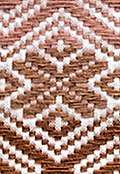
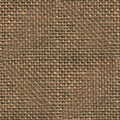
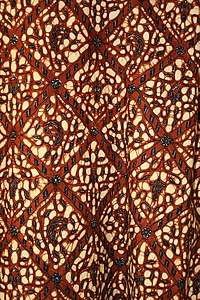
.svg.png)